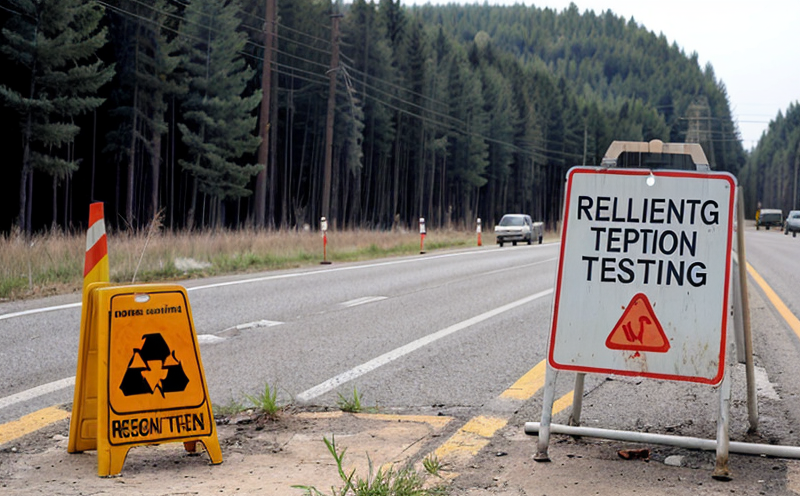ISO 18589-8 Radiochemical Determination of Iodine Isotopes
The ISO 18589-8 standard provides a robust and internationally recognized method for the radiochemical determination of iodine isotopes, which is critical in monitoring environmental contamination from nuclear activities. This procedure ensures accurate measurement of radioactive iodine isotopes (primarily I-131) to assess compliance with regulatory standards and support safety evaluations.
The standard specifies a comprehensive approach that includes sample preparation, separation techniques using liquid scintillation counting, and subsequent analysis by gamma spectrometry. These steps are designed to minimize interference from other elements present in the environment, thereby providing reliable data for decision-making processes related to nuclear safety and environmental protection.
Environmental radiation testing is essential for monitoring radioactive iodine emissions, which can result from both natural sources and human activities such as nuclear power generation or decommissioning. By adhering to ISO 18589-8, laboratories ensure they are using best practices that align with global standards, enhancing the credibility of their test results.
The process begins with the collection of environmental samples, which may include air filters, water samples, soil extracts, or biota (such as vegetation). Once collected, these samples undergo rigorous preparation steps to isolate iodine isotopes from other contaminants. This often involves chemical precipitation and extraction methods tailored to maximize yield while minimizing losses.
After successful isolation, the sample is subjected to liquid scintillation counting, a technique that quantifies beta-emitting radioactive nuclides by detecting their emitted particles in a solution containing a luminescent reagent. The efficiency of this method lies in its ability to rapidly provide quantitative results with high precision.
The final step involves gamma spectrometry for confirmation and detailed analysis. Gamma rays emitted by the iodine isotopes are measured using highly sensitive detectors, allowing for accurate identification and quantification of specific isotopes present in the sample. This dual approach ensures robust validation of the initial radiochemical measurements, providing comprehensive data that can be used to assess environmental impact accurately.
The importance of ISO 18589-8 cannot be overstated, particularly in regions where nuclear activities are prevalent or where there is a history of radioactive contamination. Compliance with this standard ensures that laboratories maintain high-quality testing practices, which is vital for ensuring public safety and regulatory compliance.
In conclusion, the ISO 18589-8 method offers a reliable framework for detecting iodine isotopes in environmental samples, supporting robust decision-making processes in nuclear safety and environmental protection. By adhering to this standard, laboratories can contribute significantly to maintaining safe and sustainable environments.
Benefits
The implementation of ISO 18589-8 brings numerous benefits to organizations involved in environmental radiation testing:
- Enhanced Accuracy: The standard ensures consistent and accurate measurements, reducing the risk of errors that could arise from non-standardized procedures.
- Improved Compliance: Laboratories can ensure their testing methods meet international standards, facilitating easier compliance with regulatory requirements.
- Increased Credibility: Adherence to ISO 18589-8 enhances the credibility of test results, which is crucial for gaining trust from stakeholders and regulatory bodies.
- Reduced Interference: The specified techniques help minimize interference from other elements, leading to more precise measurements.
- Cost Efficiency: By streamlining processes and reducing the likelihood of rework due to errors or non-compliance, organizations can achieve cost savings in the long run.
- Sustainability: Accurate monitoring of iodine isotopes supports better environmental management practices, contributing to overall sustainability goals.
These benefits collectively enhance the reliability and effectiveness of radiation testing, making ISO 18589-8 an indispensable tool for quality managers, compliance officers, R&D engineers, and procurement professionals working in this field.
Quality and Reliability Assurance
The ISO 18589-8 standard places a strong emphasis on quality assurance (QA) and reliability to ensure that the testing process is robust and produces accurate results. QA measures include regular calibration of instruments, validation of methods, and proficiency testing through participation in external audits.
Calibration ensures that all measuring devices are operating within specified tolerances, ensuring consistent performance over time. Validation involves comparing results from ISO 18589-8-compliant tests with known standards to confirm the accuracy of the method. Participation in proficiency testing programs helps identify any areas where improvements may be needed and allows laboratories to benchmark their performance against peers.
Reliability is achieved through strict adherence to standardized procedures, which minimize variability in results. This includes detailed protocols for sample preparation, separation techniques, and analysis methods. By following these guidelines meticulously, laboratories can consistently produce reliable data that meets the highest quality standards.
The importance of QA and reliability cannot be overstated, as they directly impact the credibility of test results. Inaccurate or unreliable data could lead to misguided decisions regarding nuclear safety and environmental protection, potentially resulting in significant risks. By prioritizing these aspects, laboratories can ensure their testing processes are both robust and trustworthy.
Customer Impact and Satisfaction
The adoption of ISO 18589-8 by laboratories has a direct positive impact on customer satisfaction and trust in the services provided. Customers benefit from accurate, reliable test results that meet international standards, which is essential for regulatory compliance and public safety.
For quality managers and compliance officers, having access to reliable data helps them make informed decisions regarding nuclear activities and environmental protection measures. This can lead to more effective risk management strategies and improved operational efficiency.
R&D engineers working in the nuclear sector rely on accurate test results to validate new technologies and processes. By ensuring that their testing methods align with ISO 18589-8, they can enhance the credibility of their research findings and contribute to safer and more sustainable nuclear operations.
Procurement professionals also benefit from laboratories that adhere to this standard, as it ensures the quality and consistency of materials used in various applications. This reduces the risk of purchasing substandard products and supports better supply chain management practices.
In summary, the implementation of ISO 18589-8 enhances customer satisfaction by providing accurate, reliable data that meets global standards. This not only improves regulatory compliance but also fosters trust between laboratories and their clients, ultimately leading to more effective nuclear safety and environmental protection initiatives.





